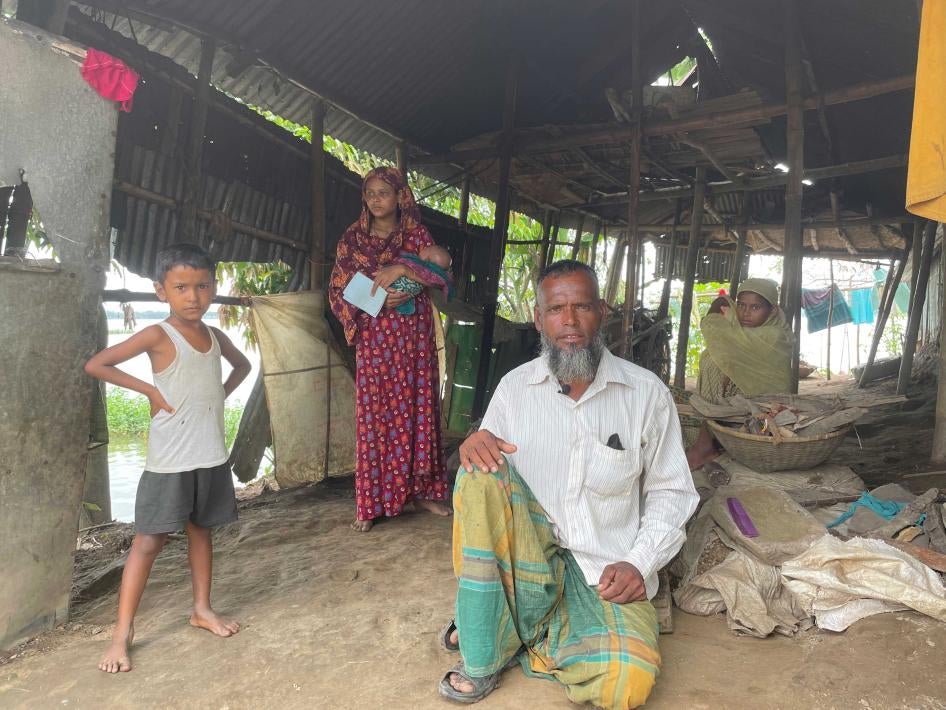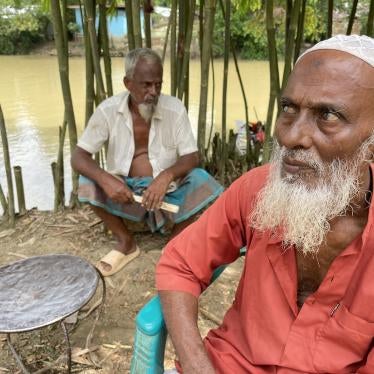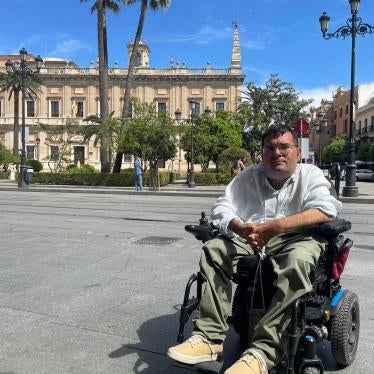As the Northern Hemisphere again experiences a surge in extreme heat, I wonder if this summer will be different from the last, which The New York Times described as a summer of climate disasters. In 2022, at least 15,000 people died from the effects of heat in Europe, June flooding in Pakistan killed 1,739 people, and flash floods in Bangladesh impacted 7.2 million people.
Human Rights Watch has investigated how extreme weather events exacerbated by climate change impact people with disabilities and older people – two groups disproportionately affected during emergencies, according to the United Nations.
During the 2021 heatwave in British Columbia, Canada, the majority of the 600 people who died were people with psychosocial disabilities, who faced an elevated risk of death during heatwaves. This increased risk stemmed from various factors, including the heat exacerbating mental health symptoms, difficulties in regulating body temperature, as well as stigma and social exclusion. Recent flooding in Australia and Bangladesh resulted in people with disabilities and older people facing life-threatening circumstances and physical and mental health distress. And in Spain’s 2022 heatwave, where extreme heat caused severe hardship and distress for people with disabilities, 98 percent of more than 4,500 heat-related mortalities were people 65 and older.
While people with disabilities and older people are at particular risk of heat-related illness and death, they are often least able to get the support they need. In each of the cases above, people with disabilities and older people were left out of climate-related planning and response, leading to insufficient protection when facing extreme weather events. In Australia and Canada, lack of targeted support for people with disabilities and older people contributed to unnecessary suffering and death. In Andalusia, Spain, emergency messaging about extreme heat was not provided in formats accessible to people with disabilities, such as sign language or Easy-to-Understand. In northeastern Bangladesh, some people with disabilities, including children, died because they couldn't access proper assistance.
Warnings of unprecedented weather events and new temperature records are again upon us and we can expect these to become more frequent and intense in coming years. To prevent further deaths and disproportionate impacts on people with disabilities and older people, governments should ensure these groups are safe, supported, and meaningfully included in any climate change discussion or response. As Gabrielle Peters, a disabled policy analysist and survivor of British Colombia’s 2021 heatwave told us, “There is a difference between facing the prospect of death because it is part of the reality of being human, and … because you have been put in a situation where you should and could survive but have been denied the tools and means to do so.”










